I'm trying to debug some ARC code, and it'd be really helpful if i could find out when an object of a certain class is added to the autorelease pool (not when it is actually autoreleased down the track).
Is this possible, eg with a breakpoint? Or by overwriting the 'autorelease' method and putting a breakpoint in it? Any suggestions?
-- edit --
The problem is that i've got an infrequent crash occurring where a custom subclass of UIView is autoreleased on a background thread, which crashes because UIView's cannot be dealloc'd on a background thread. The trace looks like below:
0 libsystem_kernel.dylib __pthread_kill + 8
1 libsystem_c.dylib pthread_kill + 54
2 libsystem_c.dylib abort + 94
3 libc++abi.dylib abort_message + 46
4 libc++abi.dylib default_terminate() + 24
5 libobjc.A.dylib _objc_terminate + 146
6 libc++abi.dylib safe_handler_caller(void (*)()) + 76
7 libc++abi.dylib operator delete(void*)
8 libc++abi.dylib __cxa_throw + 122
9 libobjc.A.dylib objc_exception_throw + 94
10 CoreFoundation +[NSException raise:format:]
11 Foundation -[NSAssertionHandler handleFailureInMethod:object:file:lineNumber:description:] + 90
12 MYAPP MySuperclass.m line 156 -[MySuperclass dealloc]
13 MYAPP MyClass.m line 41 -[MyClass dealloc]
14 ... libobjc.A.dylib _objc_rootRelease + 36
15 libobjc.A.dylib objc_release + 38
16 libobjc.A.dylib (anonymous namespace)::AutoreleasePoolPage::pop(void*) + 224
17 libobjc.A.dylib _objc_autoreleasePoolPop + 12
18 CoreFoundation _CFAutoreleasePoolPop + 18
19 libdispatch.dylib _dispatch_worker_thread2 + 338
20 libsystem_c.dylib _pthread_wqthread + 294


